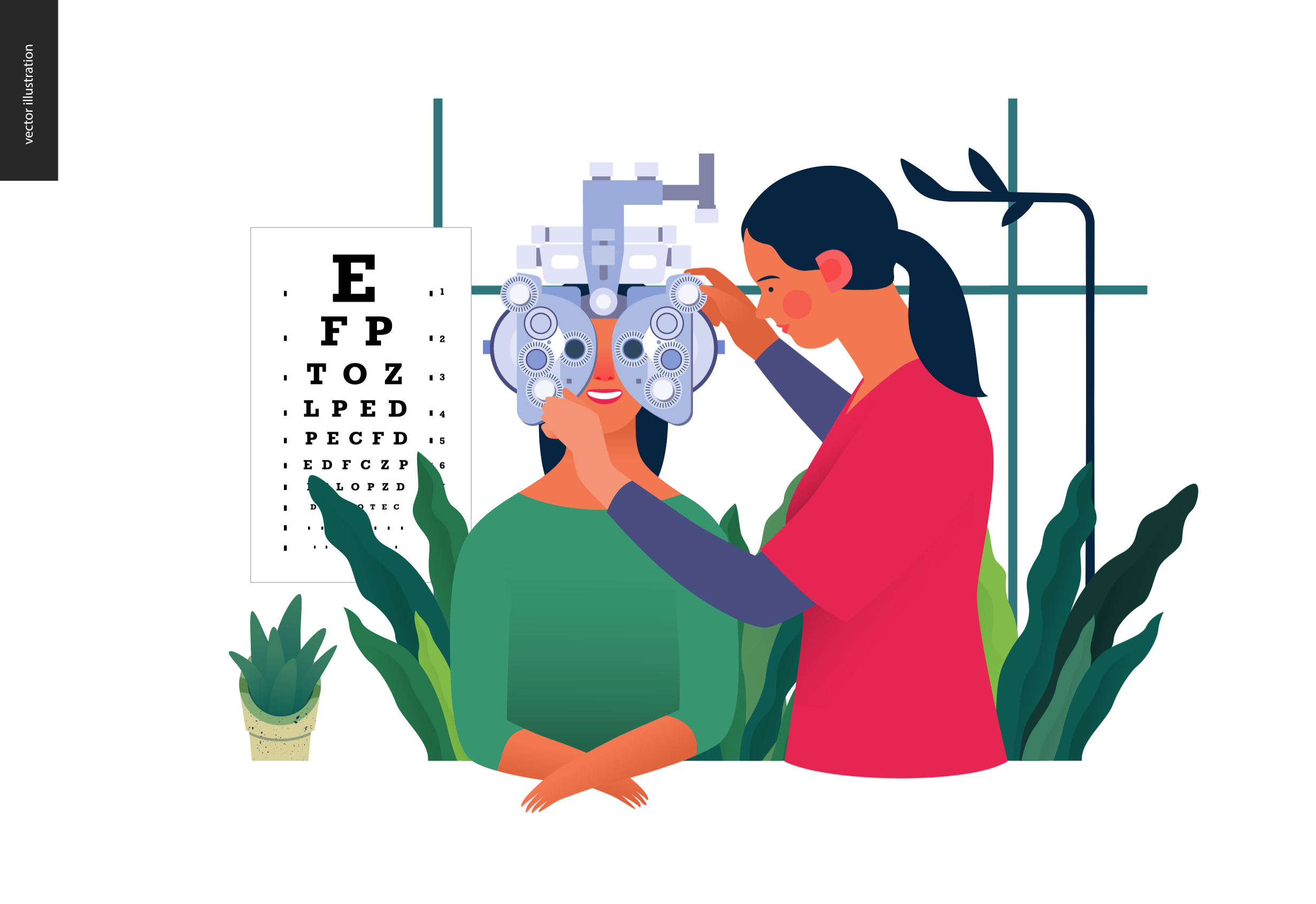
During an eye checkup, the doctor examines the structure of the eyes and surrounding tissues. They may ask you to move your eyes in different directions and see how your pupils respond to light. He or she also checks visual acuity or how well each eye sees. Then, you are assessed for refractive errors, such as nearsightedness or farsightedness. Of course, depending on the results of the initial tests, the doctor might recommend further evaluations.
Undoubtedly, eye exams and vision testing help keep your eyes healthy. These tests can detect eye and vision problems early on, allowing you to start with the intervention immediately. Now, the question is, how often should you get your eyes checked?
Recommended Eye Examination Frequency
According to the American Academy of Ophthalmology, if you have good vision and are healthy, you must have a complete baseline eye exam by an ophthalmologist once during your 20s and twice during your 30s. It’s also necessary to have a complete eye exam once you turn 40 since this is when signs and symptoms of eye problems usually appear.
But what about the frequency of eye checkups? As per the American Optometric Association, it depends on your risk and age.
If You’re At Risk
If you are 18 to 64 years old and at risk, you must have your eyes checked at least yearly or as your doctor recommends. You are at risk if you:
Belong to a particular ethnic group
Have a family history of eye disease, like glaucoma
Have an existing health condition that may affect your eyes, such as diabetes
Have a job that’s visually demanding or hazardous to the eyes
Take prescription medicines that may affect the eyes
Have functioning vision in only one eye
Had an eye injury or surgery
Wear contact lenses
Have a high or progressive refractive error
Have other eye-related concerns or conditions
If You’re Asymptomatic or at Low Risk
Now, if you’re 18 to 64 years old with no eye-related symptoms or are at low risk, the frequency of examination is at least every two years.
If You’re 65 and Up
If you’re 65 and older, you need to have your eyes checked at least annually or as recommended by your doctor.
Signs That You Should Have Your Eyes Checked ASAP
If you have the following eye problems, please don’t wait for your next appointment. Visit your eye doctor right away.
Redness or draining of the eyes
Decreased vision
Eye pain
Double vision
Seeing circles or halos around lights
Seeing floaters (specks that seem to float before your eyes)
Seeing flashing lights
Don’t Set Aside Your Eye Health
According to the Centers for Disease Control, the number of blind and visually impaired people in the U.S. may double by 2030 and triple by 2050. So, don’t set aside your eye health. Regular eye exams help protect your vision and catch eye problems before they get worse.
Learn more about the eye exams and vision screening you might need. Visit Blue Hills Eye Associates in Braintree, Massachusetts, or call 781-794-2200 to schedule an appointment.








